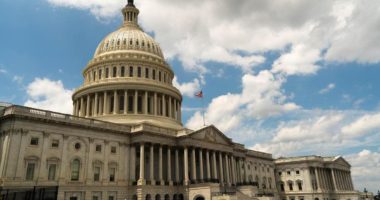On Jan. 31, 2020, the Department of Health and Human Services (HHS) first declared that a public health emergency (PHE) exists for COVID-19. This declaration, combined with legislation passed by Congress, allowed federal agencies, such as the Centers for Medicare and Medicaid Services (CMS), to issue temporary regulatory changes under authority that they otherwise do not have. These important regulatory flexibilities were essential for helping the government and the health care system respond to the COVID-19 pandemic. These regulatory flexibilities remain in effect until the PHE ends.

Allergists should prepare for telehealth and other regulatory waivers for physicians, such as relaxed supervision requirements and enrollment procedures to expire as soon as Jan. 11, 2023. Even if HHS issues another renewal beyond that date, it is increasingly clear that CMS plans to end the PHE sooner rather than later.
While the exact end date has yet to officially be determined, it is clear that federal agencies – like CMS – are preparing for the PHE to end soon. In August, CMS published a Roadmap for how it will end the PHE. This Roadmap, among other things, reminds the public about the temporary regulatory changes that have been in effect since the PHE began.
One of the most popular temporary regulatory changes is expanded coverage for Medicare telehealth services. During the PHE, CMS waived requirements that previously limited Medicare telehealth to beneficiaries in rural areas, required beneficiaries to travel to an originating site for the visit, and required a connection using a HIPAA-secure audio-visual communication method, among other things. Congress will need to pass legislation to extend these policies beyond the expiration of the PHE. Congress already passed legislation that proactively extends some of the telehealth coverage expansions for 151 days after the PHE expires. The Medicare 2023 physician fee schedule announced that telehealth services covered during the PHE will be paid at the same rate as in-person visits at least through the end of 2023.
| Summary of Pre-Pandemic Medicare Telehealth Coverage Requirements | Summary of Temporary Pandemic Medicare Telehealth Coverage Requirements |
|---|---|
|
*Congress proactively extended these provisions for 151 days after the PHE ends. |
CMS has also been dedicating significant resources toward helping state Medicaid programs prepare for the end of the PHE. During the PHE, states received increased federal Medicaid payments in exchange for not removing any Medicaid beneficiaries from the programs. States will need to reverify every Medicaid beneficiary’s eligibility within 12 months of ending the PHE. CMS provided a toolkit to states as a resource for this unwinding.
PHEs must be renewed in 90-day increments. On Oct. 13, HHS Secretary Xavier Becerra signed the eleventh 90-day renewal of the COVID-19 PHE. This renewal extends the PHE until Jan. 11, 2023. Signals from the Biden administration suggest this could be the final renewal.
HHS stated it will give the public advance notice of at least 60 days before allowing the PHE to expire. This means HHS will need to notify the public by Nov. 12, 2022 that this will be the final renewal. We’ll continue to monitor and update you on this issue.
The Advocacy Council – ADVOCATING FOR ALLERGISTS AND THEIR PATIENTS.



